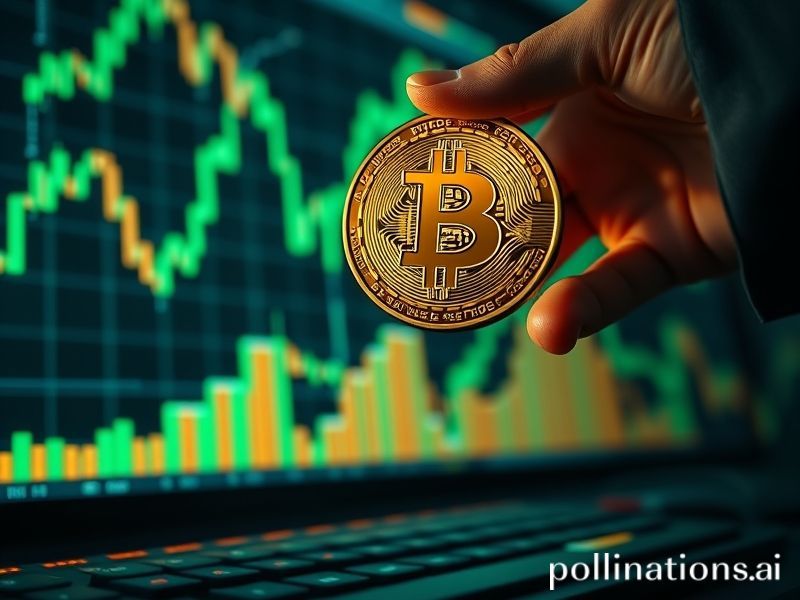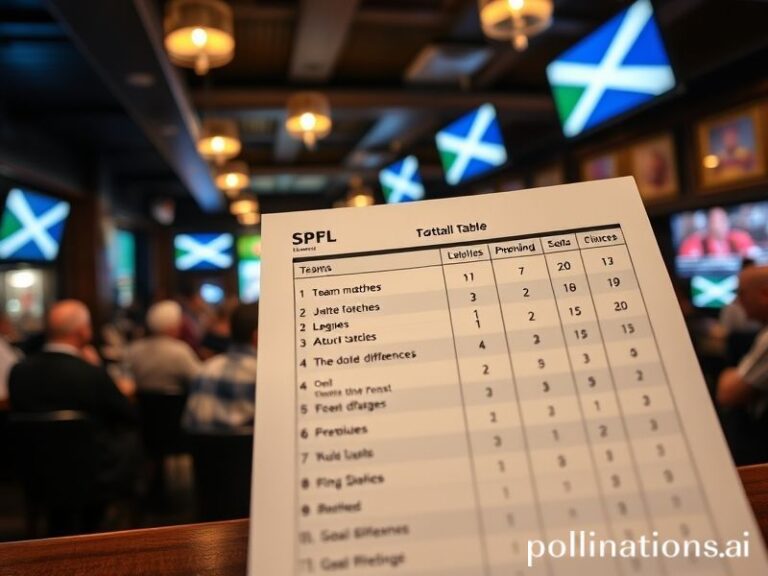Global Schadenfreude Index: How the BTC Price Became the World’s Shared Mood Ring
The sun never sets on the Bitcoin empire—partly because it’s too busy rising and falling every fifteen minutes. From the glass towers of Singapore to the blackout-prone suburbs of Johannesburg, the BTC price has become the world’s most unreliable heartbeat monitor: every spike a collective gasp, every dip a synchronized clutching of national pearls. In a planet already juggling wars, elections, and whatever Elon Musk tweeted at 3 a.m., the price of a single digital token has somehow elbowed its way into the same headline tier as “nuclear submarine missing.” Congratulations, humanity: we’ve monetized anxiety and put it on the blockchain.
Start in El Salvador, where President Bukele has stapled Bitcoin to the national identity like a souvenir fridge magnet. When BTC soared past $70,000, the country’s “volcano bonds” suddenly looked less like an SNL sketch and more like a sovereign wealth fund. When it slid back to $60k, the finance minister discovered a previously unknown talent for interpretive dance in press conferences. Meanwhile, in the European Union, regulators who spent years drafting 400-page MiCA rulebooks watched the price ricochet and quietly wondered if legislation moves slower than a margin call. Somewhere in Brussels, a bureaucrat is Googling “how to regulate lightning.”
Travel east and you’ll find that in China, where crypto trading is “banned” in the same way speeding is “illegal” on the Autobahn, OTC desks simply moved from WeChat to yacht clubs in Shenzhen. The BTC price is now transmitted via subtle nods over $300 cups of pu-erh tea. In Moscow, sanctions have turned Bitcoin into the preferred getaway car for oligarch cash; every green candle on the chart is just another yacht slipping out of Sevastopol. And in Nigeria, where the naira’s main hobby is devaluation, young freelancers treat the BTC/USD rate like a weather forecast: “Partly bullish with a chance of IMF turbulence.”
The Americans, never shy about monetizing moral panic, have turned the price into a political prop. Donald Trump recently announced he’s now “good with crypto,” which is a bit like the iceberg endorsing the Titanic. Across the aisle, Senator Warren’s anti-Bitcoin task force holds hearings titled “Protecting Consumers” while staffers frantically DCA into a hardware wallet labeled “retirement.” In truth, both parties have discovered the same thing: the higher BTC goes, the louder the electorate yells, and the easier it is to drown out the national debt’s polite throat-clearing.
But the real spectacle is watching the Global South arbitrage the Global North’s hysteria. Miners in Kazakhstan thank Europe for outlawing proof-of-work, then sell the “dirty” hash power right back through shell companies in Dubai. Argentine grandmothers who once bought dollars under the mattress now memorize seed phrases, because a twelve-word string can’t be frisked at customs. In Lebanon, banks have restricted withdrawals to the point where the BTC price quoted on local Telegram channels is denominated in “how many months of your life you’re willing to queue.”
And yet, for all the geopolitical theater, the price chart remains a Rorschach test of collective delusion. A hedge-fund quant in Connecticut sees “institutional adoption.” A 19-year-old in Manila sees “escape velocity.” A climate scientist sees “proof-of-stake or bust.” They’re all right, and all wrong, which is precisely the point: Bitcoin’s value is the first Schrödinger’s currency—simultaneously worthless and priceless until you open the wallet.
So what does the BTC price mean on a spinning, overheating rock where eight billion people share a dwindling supply of fresh water and common sense? It means we’ve gamified hope itself, tokenized the human talent for believing tomorrow might be better—even if today’s exchange rate suggests otherwise. And as long as that hope stays volatile, so will the price, ticking along like a Geiger counter on the beach of late-stage capitalism. Place your bets, ladies and gentlemen; the house is on fire, but the slots are still paying out.







